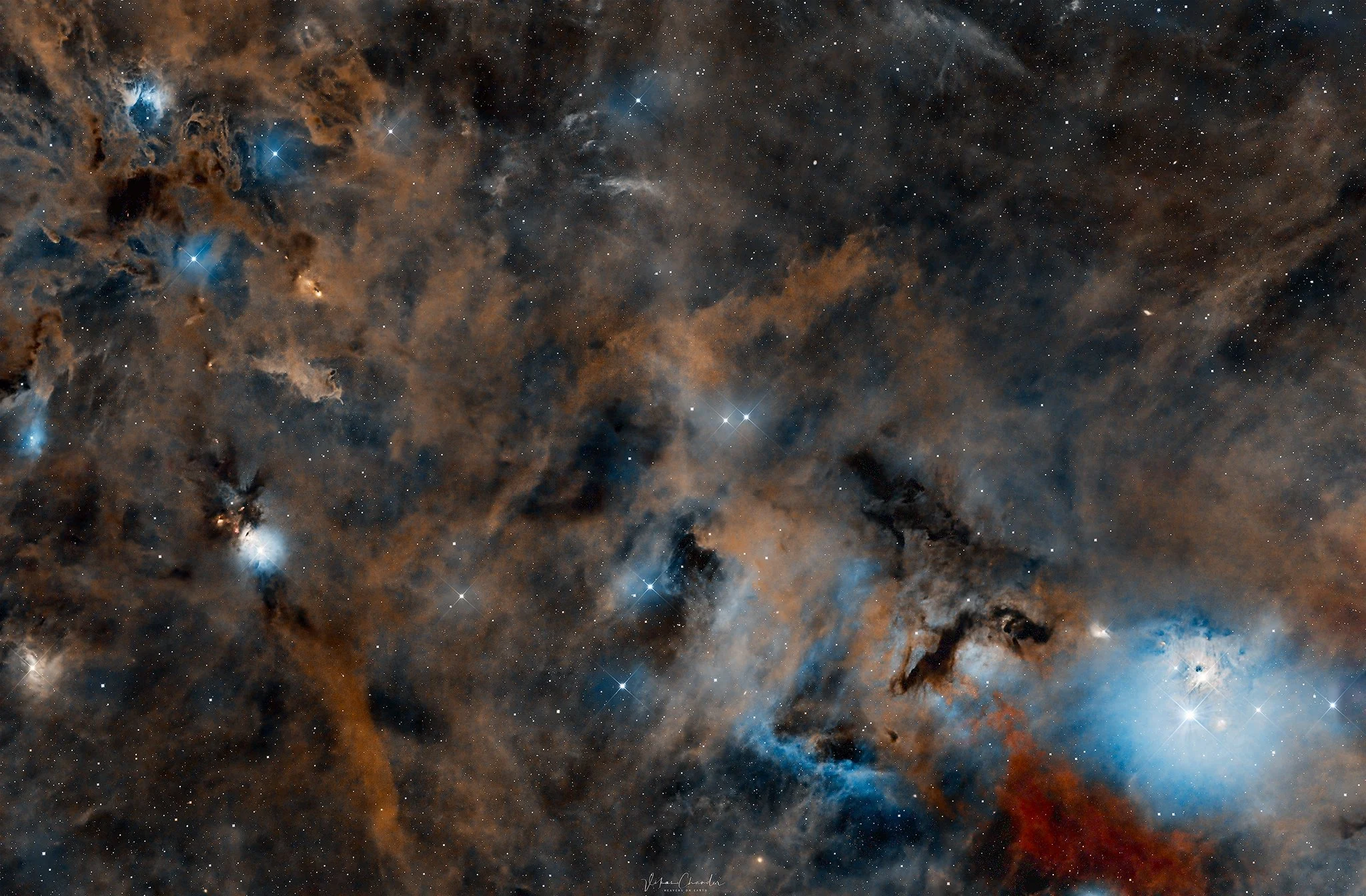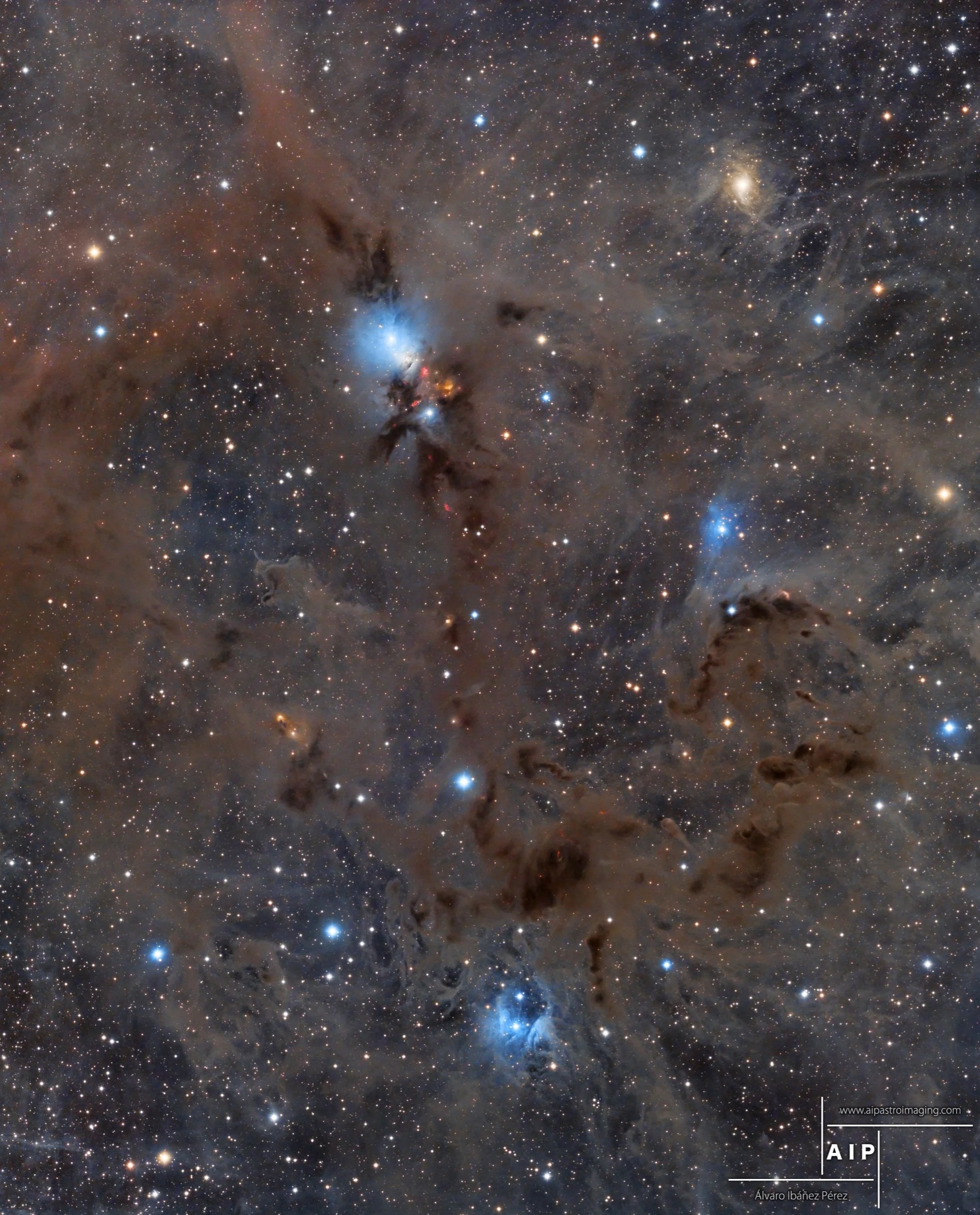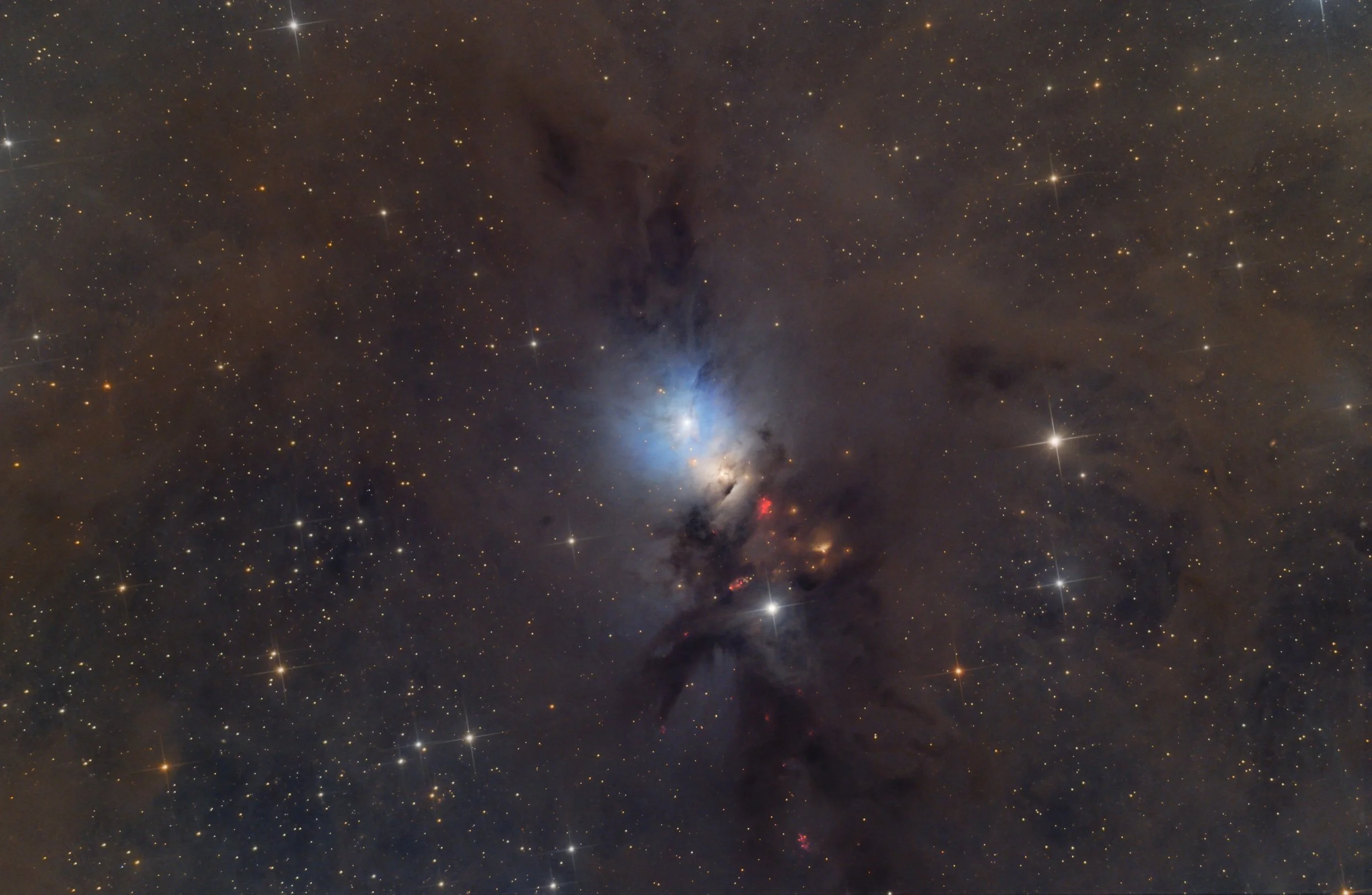
AAPOD2 Image Archives
ngc1333
Featured Astrophotographer on AAPOD2
Dust in Perseus
Image Description and Details : Dust of Perseus
Lying a thousand light years away, in the constellation of Perseus, lies NGC 1333. It is a reflection nebula which basically is a region of dust and gases which are reflected back from the light of a nearby star. It is a region of beautiful chaos arising out of a dense group of stars being born. Dusty regions intrigue me a lot and I am very fascinated by seeing some brilliant images on various platforms of the dusty regions in Taurus and Perseus. They are best brought out with widefield mosaics with long exposures and a deft hand at post processing. A fast scope such as the E180 married to a modern sensor is best suited for the job.
Telescope: Takahashi Epsilon 180 F/2.8 Astrograph
Camera: ZWO ASI 2400MC Pro Colour CMOS 35mm Sensor
Mount: Software Bisque Paramount MX
Observatory : Roboscopes, Spain.
RGB OSC = 60 frames x 300secs x 4 panels
Total integration = 20hrs
Software = PixInsight
Copyright: vikas chander
NGC1333
Image Description and Details :
Telescope: Takahashi FSQ106EDX (f/5)
Munt: Takahashi EM400 Temma2
Camera: Atik 16200 mono
Filters: Astrodon Gen2 LRGB I-Series 50,8mm + IDAS LPS
Filter Wheel: SX USB Filter Wheel 5x50,8mm
Guider: Lunático EZG-60 + SXLodestar
Flat panel: RB Focus eXcalibur
Powerbox: RB Focus Balinor Pro
Focus: RoboFocus
Adquisition: N.I.N.A.
Processing: PixInsight Core + Photoshop
Exposure:
L: 90x600s bin1
RGB: 30x300s bin2 each channel
Total: 23h 30min
Captured during 4 nights from Yela, Las Inviernas and Navas de Estena (Spain)
Copyright: Alvaro Ibañez Perez
NGC 1333 in Perseus molecular cloud
Image Description and Details : NGC 1333 is a reflexion nebula, located inside the Perseus molecular cloud
This picture combines 24h20' of data, taken during four nights. Long exposure reveals faint structures surrounding the nebula.
Scope : 200/1000 Newtonian
Mount : eq6r-pro
Camera : ASI2600 MC
Off axis guiding
No filter
146x600s : 24h20'
Copyright: Yann MEVEL
ic 348
Image description: IC348 to NGC1333 in part of the Large Molecular Cloud in Taurus. Imaged remotely from Spain with the FSQ106 and ZWO-ASI6200MM pro, Unguided on an Paramount MX.
Exposures was just over 7hrs total, 15x 240s in Blue, 30x240s in Green and 24x 240s in Red, Luminance was 33x 300s combined for a super Luminance all binned 1x1. Processed in Pixinsight and Photoshop.
Copyright: Peter Shah
Perseus Molecular Cloud
Image Description and Details : First "official" photo of our team Team Stellae Orientis Astrophotographie with the Perseus molecular cloud in LRGB by Yann SAINTY.
The Perseus molecular cloud contains the nebulae NGC1333 and IC348.
First lights on the fsq106 and the 2600MM and the result is up to my expectations. Combined with a bortle 4 sky this setup promises beautiful moments.
No moon so I wanted to image NGC1333 but seeing the beauty of IC348 next to it I could not resist the appeal of the mosaic despite the fact that it was not recommended during a first session with a new setup.
I imaged over 2 nights instead of 4 (lots of humidity and fog), which frustrates me in the sense that I only got half of the raws I wanted and so I had to shoot more processing. as desired, but you have to know how to have fun and try things!
Technic :
Takahashi FSQ106 EDX4 with 645-QE super reducer
Asi 2600MM Pro
LRGB Antilla Filters
Eq6r-pro
Altaïr 60/225 guide + asi 290mm mini
L: 45x300 '' per tile
R - V -B: 15x300 '' per filter per tile
Sky bortle 4
Acquisition: N.I.N.A + Phd2
Processing: Siril + PixInsight + Photoshop
From France
2021/10/07 & 2021/10/10
Copyright Yann SAINTY
Stellar Nursery in Perseus
Our Milky Way is actually full of dust, but hidden in the black starry background, it is not easy to see. Only by accumulating a long time of exposure, the dust that pervades the stars will show up, presenting rich details of intricate complexity.
This large patch of dust in the picture is part of the Perseus molecular cloud, located at the junction of Taurus, Aries, and Perseus, about 1,000 light years away from the Earth. The dust with a total mass equivalent to 10,000 suns is gathered in clusters or twisted into twists. The thick areas are dense and opaque, and darker than space itself.
In this darkest corner, new light is gestating.
The dust near the center, a little red light came out from it, that was a star cluster forming in it. Beside this dust, a newborn star dispelled the haze, illuminating the surroundings with bright light, and became the brightest deep sky object in this area.
In the new Chinese year of the ox, may the world sweep away the dust, dispel darkness, and reappear light.
Location: Hebei Kangbao Galaxy Observatory
Filming time: November 7, 2020-February 4, 2021
Telescope: Sharpstar 150 2.8 HNT
Camera: QHY268C
Mount: Aton iOptron CEM70/CEM60
Guide : QHYCCD OAG-M
Guide camera: QHY5L-II-M
Number of shots: 130×1000 seconds, 70×300 seconds
Cumulative exposure: 41.9 hours
Shooting software: APT
Processing software: PixInsight, PhotoShop
Copyright: Steed Yu








